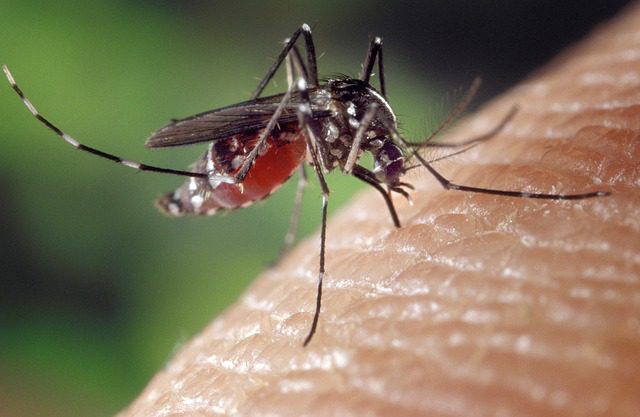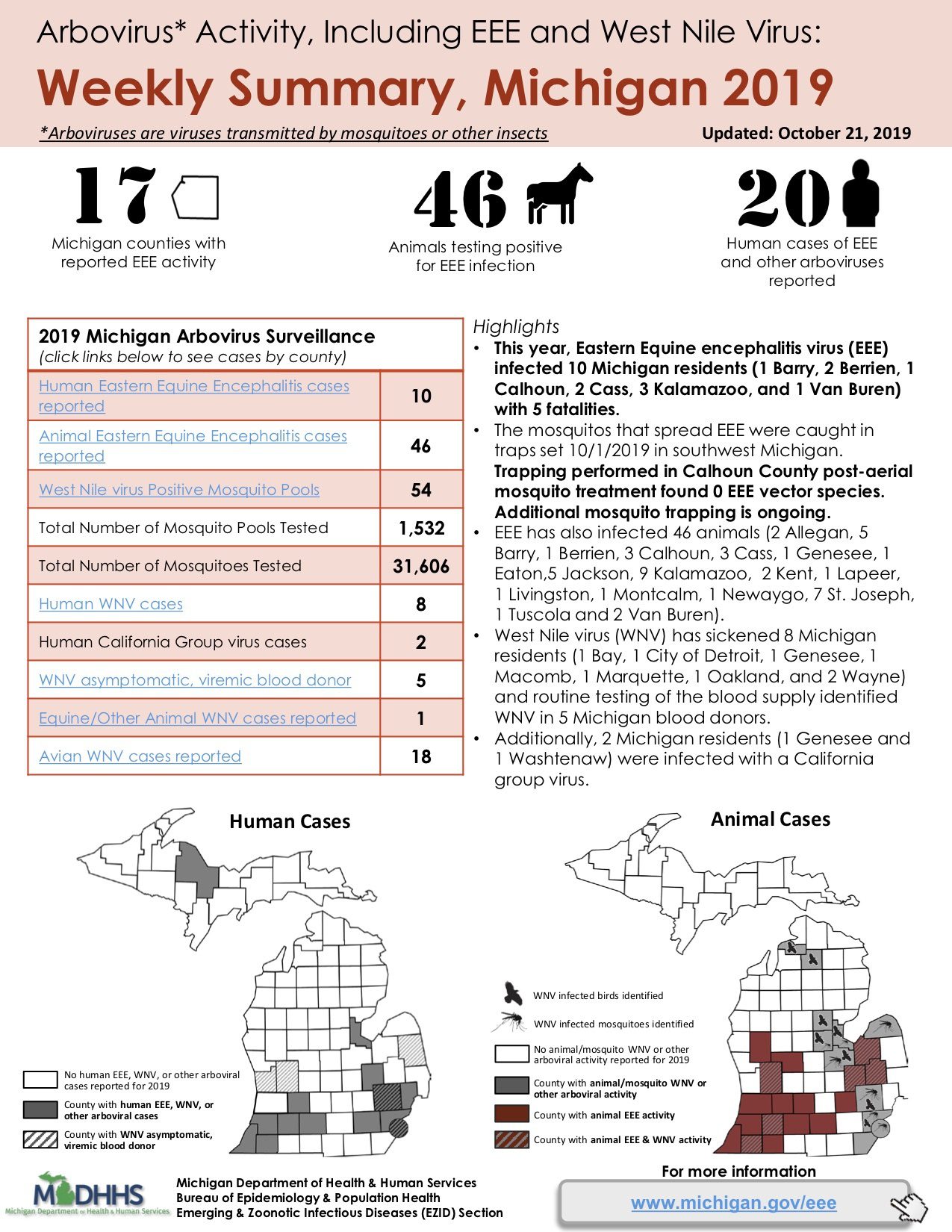
by Dr. Taryn Clark
Eastern Equine Encephalitis (EEE) in Michigan
Many of our clients are concerned about Eastern equine encephalitis (EEE) in their dog or cat. EEE is caused by a virus which is spread by infected mosquitoes. Infections in dogs are extremely rare and not something we are overly concerned about at this time. Historically, the few dog cases that have been identified were found in puppies less than 6 months of age. Symptoms of the few cases reported in puppies were fever and gastrointestinal upset which progressed to severe neurological signs within a couple of days.
For dogs and cats, there is no treatment for eastern equine encephalitis except for supportive care and there is no vaccine available. Horses—equines—are the main victims of this infection and the fatality rate is up to 90 percent, though there is a vaccine that works well for horses. As of October 21, there have been no confirmed cases in Washtenaw County in 2019.
In the Unites States we’ve typically had an outbreak every ten or so years since 1980.
Eastern equine encephalitis virus in humans
You cannot get Eastern equine encephalitis directly from another person or animal. The virus can cause encephalitis (inflammation of the brain). According to the CDC, approximately one-third of the human cases of EEE are fatal. In the United States since 1964, there have been an average of six EEE cases in humans reported annually. Most cases are from the eastern or Gulf Coast states. This year there have been 35 confirmed cases nationally with 13 deaths, including ten human cases from six Michigan counties, with 5 out of 10 of the cases being fatal. No cases were in Washtenaw County.
It takes 4 to 10 days after the bite of the infected mosquito to develop symptoms of EEE. Symptoms of EEE are headache, fever, chills, vomiting, disorientation, seizures, and coma. Survivors are frequently left with brain damage.
People who are at highest risk of infection live in or visit woodland habitats and/or work outside or participate in outdoor activities.
To reduce your risk of EEE, avoid being outside between dusk and dawn, apply insect repellents with DEET to clothing and skin, wear long sleeved shirts and pants when outdoors, screen windows and doors, and reduce the amount of standing water available in the environment.

The virus that causes EEE is spread by infected mosquitoes.
Reduce the risk to pets
To reduce the risk to your pets, you may want to keep your pets in as much as possible between dusk and dawn. There are good topical pet safe mosquito repellents available (e.g. Effitix, Vectra). Mosquito repellents that are labeled for humans are not considered pet safe and should not be used on your dog or cat. Please consult your veterinarian if you are unsure of what products may or may not be safe for your pet.
Currently at Ann Arbor Animal Hospital we do not have any known cases of EEE in our dog/cat patients.

Recent Posts
About Us
Ann Arbor Animal Hospital is a locally-owned animal hospital operating for over 90 years in Ann Arbor, MI.
